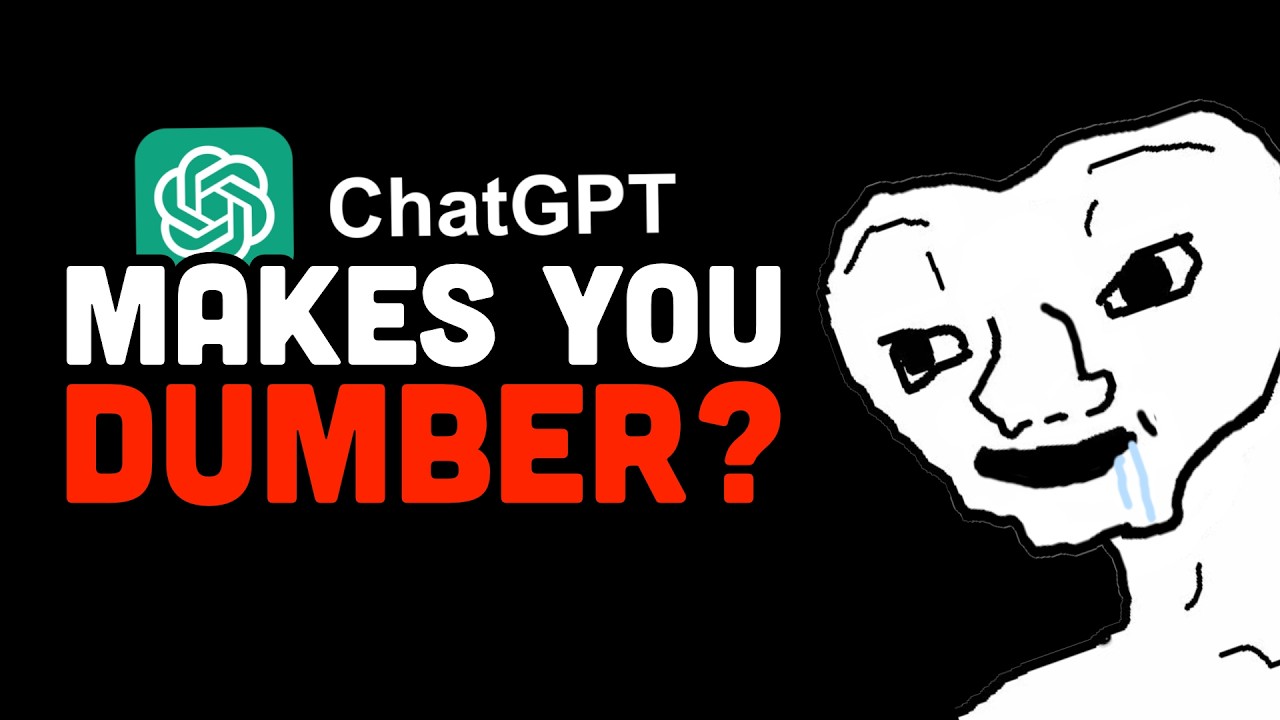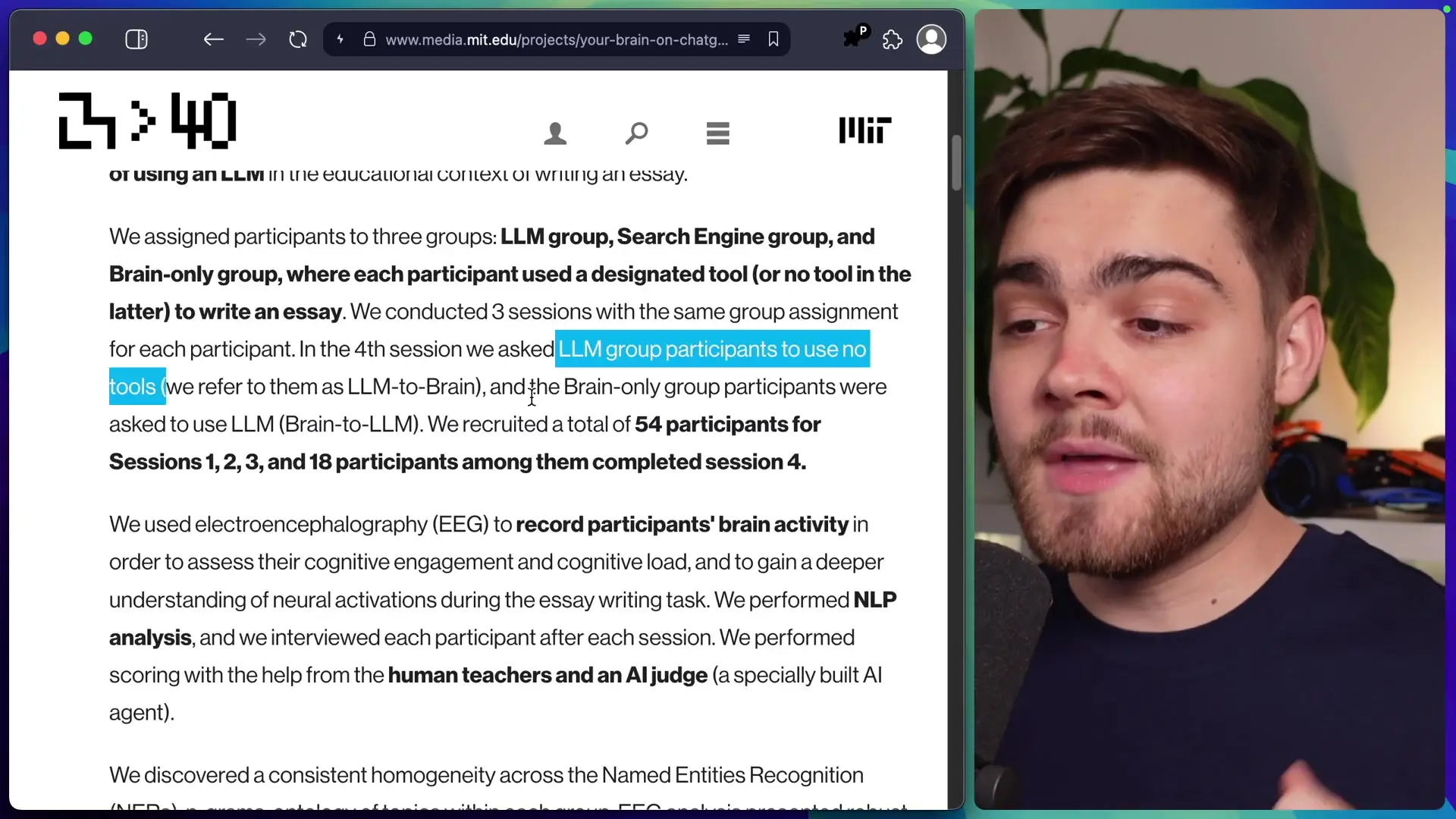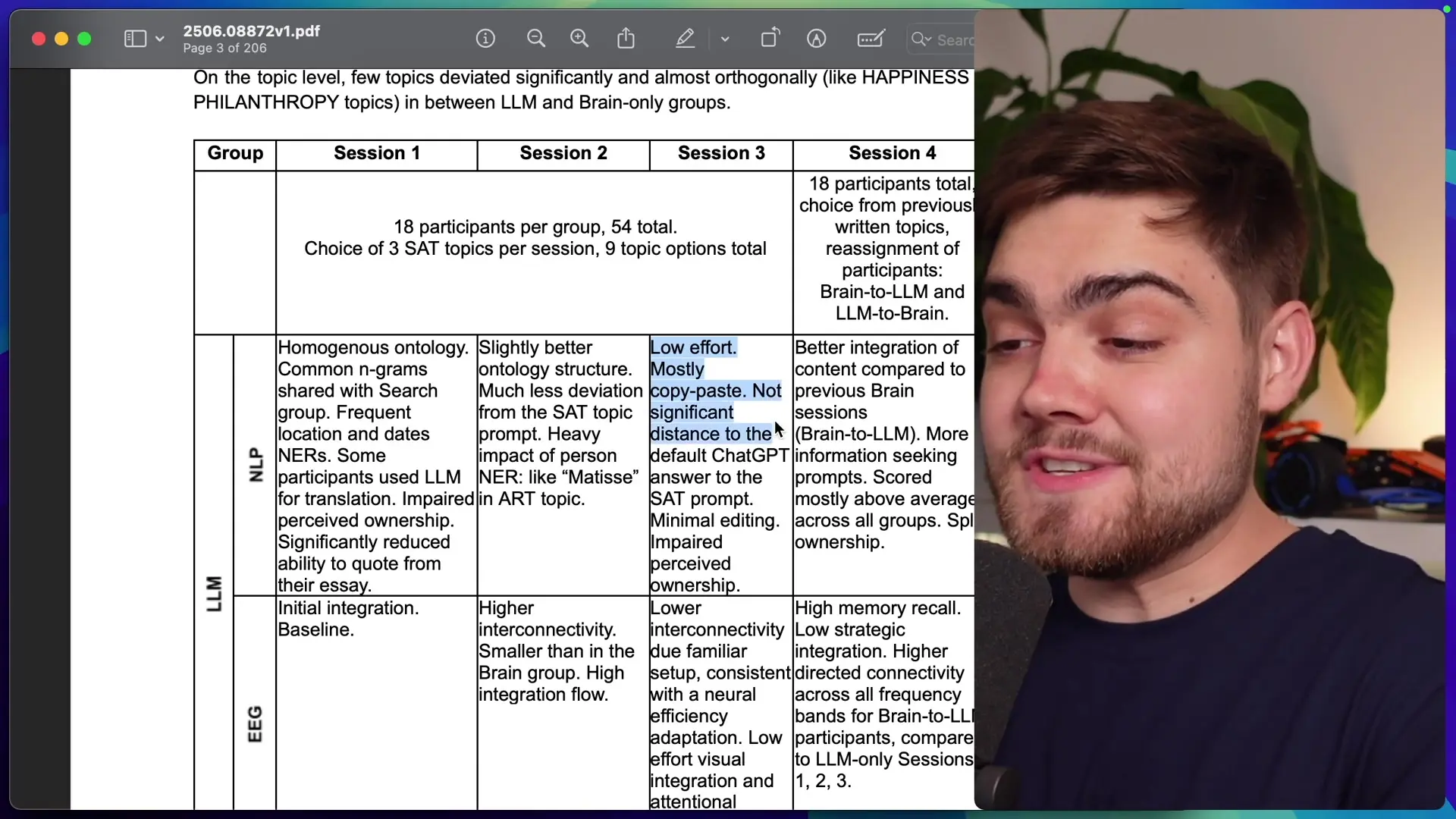
A groundbreaking study from MIT has revealed concerning evidence about how AI assistants like ChatGPT might be affecting our cognitive abilities. The research, titled "Your Brain on ChatGPT: Accumulation of Cognitive Debt When Using an AI Assistant for Essay Writing Task," provides scientific data confirming what many have suspected: using AI tools significantly reduces brain activity compared to completing the same tasks manually.
The Research Methodology
The MIT researchers designed a comprehensive experiment to measure the impact of AI use on cognitive function. They divided participants into three distinct groups:
- LLM Group: Participants who used ChatGPT for writing tasks
- Search Engine Group: Participants who used search engines for research
- Brain Only Group: Participants who completed tasks without digital assistance
Participants completed multiple writing sessions focused on SAT-style essay prompts covering philosophical topics like loyalty, happiness, and philanthropy. During these sessions, researchers recorded brain activity using EEG technology, conducted interviews, and analyzed the quality of essays with both human teachers and AI evaluation.

Key Findings: The Cognitive Impact of AI Use
The results revealed significant differences in neural activity patterns between the three groups. Brain connectivity systematically decreased with increased external support from AI tools. The brain-only group exhibited the strongest, most wide-ranging neural networks, while the LLM assistant users showed the weakest overall brain engagement.
Perhaps most concerning was the discovery of "cognitive debt" - when participants who had been using ChatGPT were asked to switch to brain-only writing in the fourth session, they continued to show weaker neural connectivity. This suggests that reliance on AI tools may have lasting effects on cognitive function even after the tools are no longer being used.
Memory and Content Ownership
The study revealed striking memory deficits among AI users. When interviewed immediately after completing their essays, 83.3% of participants in the LLM group failed to provide correct quotations from their own work. By contrast, only 11.1% of participants in both the search engine and brain-only groups had similar difficulties.
This dramatic difference highlights how using AI to generate content creates a disconnect between the writer and the material. Participants reported low feelings of ownership over the AI-generated essays - unsurprising given they didn't truly author the content themselves.

Quality of Output and Effort
While AI-generated essays initially appeared beneficial, the research revealed that over time, LLM group participants performed worse than their counterparts in the brain-only group across all evaluation metrics. The AI-assisted essays showed homogeneity in structure and content, with minimal deviation from default ChatGPT responses to the same prompts.
The researchers noted that by the third session, LLM users demonstrated mostly low-effort behaviors, primarily copying and pasting AI outputs with minimal critical engagement or editing. In contrast, search engine users showed high visual-executive integration, actively incorporating search results with cognitive decision-making.
Study Limitations
The researchers acknowledged several important limitations to their findings:
- Small sample size (54 participants total, with 18 in each group)
- Context-specific focus on essay writing in educational settings, which may not generalize to all AI applications
- Testing limited to text modality only, not including audio interactions with AI
- Focus on specific types of writing tasks that may not represent all cognitive activities

Implications for AI Users and Developers
This research doesn't suggest abandoning AI tools entirely but rather highlights the importance of intentional use. The findings have significant implications for how developers approach AI integration in educational and professional settings. Rather than designing AI to simply replace human effort, the focus should be on creating tools that enhance cognitive engagement while providing assistance.
For users, the study suggests that mindlessly relying on AI for content creation may have unintended consequences for cognitive abilities. Instead, a more balanced approach might involve using AI as a collaborative tool while maintaining active engagement with the material - learning with the AI rather than simply copying its outputs.
Future Research Directions
The MIT team indicated that future studies will explore the impact of AI on programming tasks. This expansion into technical domains will provide valuable insights into whether the cognitive effects observed in writing tasks extend to other complex problem-solving activities like coding.
As AI tools become increasingly integrated into education and workplace environments, understanding their cognitive impact becomes essential. This pioneering research provides an important foundation for developing more thoughtful approaches to AI integration that preserve and enhance human cognitive abilities rather than diminishing them.
Conclusion: Balancing AI Assistance with Cognitive Development
The MIT study confirms that while AI tools like ChatGPT offer efficiency benefits, they come with potential cognitive costs. The key takeaway isn't to avoid these powerful tools but to use them more intentionally - engaging critically with AI-generated content rather than passively consuming it.
As AI continues to evolve and integrate into our daily lives, maintaining awareness of these cognitive impacts will be crucial for developers, educators, and users alike. The goal should be creating a symbiotic relationship with AI that enhances human capabilities rather than replacing or diminishing them.
Let's Watch!
MIT Study Reveals How AI Assistants Impact Brain Activity and Cognitive Function
Ready to enhance your neural network?
Access our quantum knowledge cores and upgrade your programming abilities.
Initialize Training Sequence